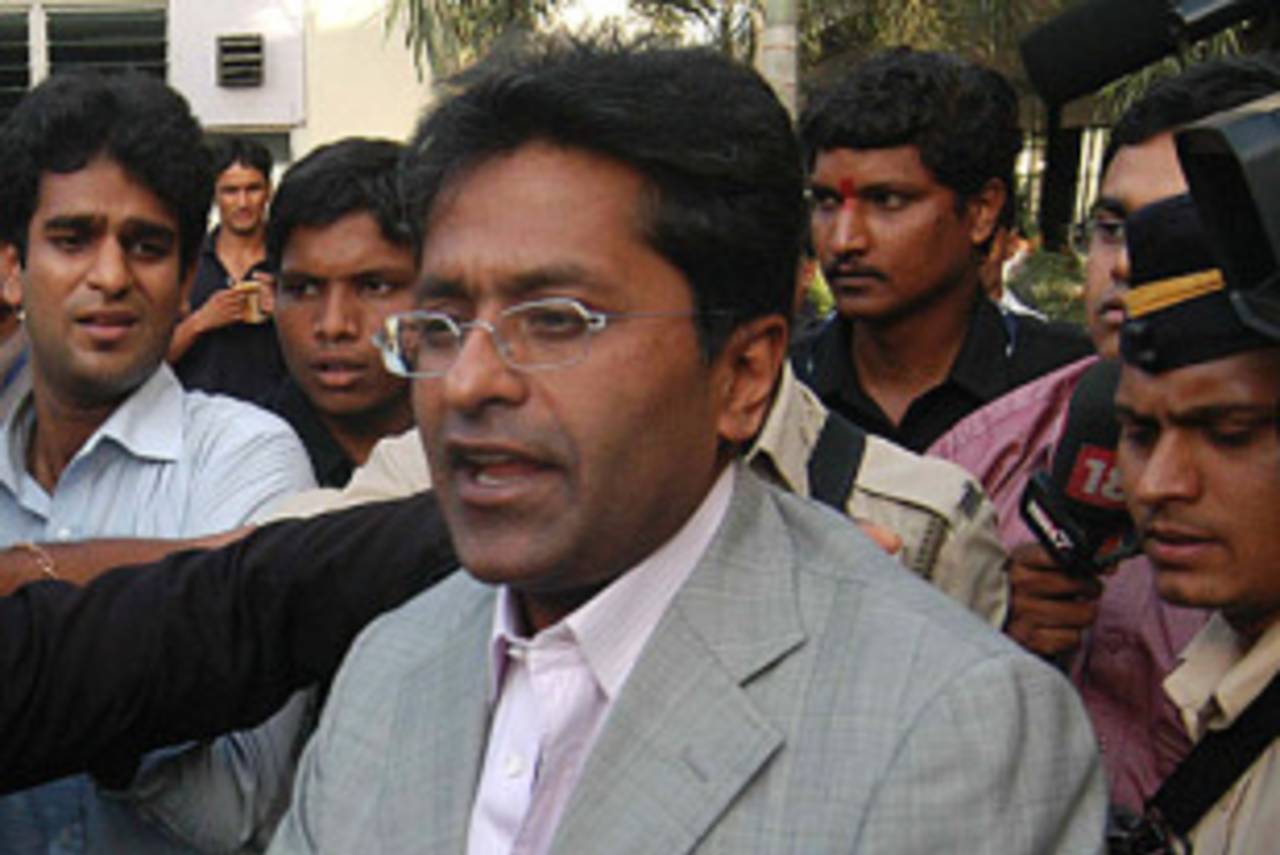A monk's extraordinary patience can be a hindrance to desperate decision-making. The ability to bat for six hours can come in the way of playing a ten-ball explosive innings. Sometimes your greatest strength can emerge as a weakness if the context changes. I suspect Lalit Modi is caught in such a dilemma.
The enormity of his ambition for the IPL, a phenomenal ability to notice a profit-making opportunity, and the attention to detail that allows for successful execution of good ideas make Modi one of the finest decision-makers in a fast-moving environment. The best word I have heard to describe him is "audacious"; and it required audacity to take the IPL and convert it into a global sporting brand in a little over a year.
It is this audacity that makes him rub people the wrong way. He can be charming but he can be arrogant too, and he is not his best PR manager. In his adrenaline-fuelled, high-speed world, where everything was needed yesterday, he can ride roughshod over anything he perceives to be an impediment to his idea.
Now it appears he has rubbed a lot of people the wrong way and has presented a classic dilemma to the BCCI. Can you look at a weakness and jettison the strength? Do you throw the baby out with the bathwater? And yet, a brand must not only be clean but should be perceived to be the same by its consumers for it to become great. Whether or not the IPL is unclean, there is little doubt it is being seen to be that way, and that is cause enough for an immediate redressal. The BCCI must act very fast.
They could take the stand that people don't need to know a brand's ownership details as long as they like it. But the best-known brands acquire respectability, and therefore longevity, only if they are perceived to be clean. And the one non-negotiable fact is that the law of the land must be followed in letter, if not always in spirit. And so, if the IPL retains ambitions of becoming one of sport's greatest global brands, it must go out of the way to be seen as above board. I suspect that will be easier than allowing politicians to eye it. They are circling at the moment, eager to grab a bite.
And that is why the BCCI must immediately promise the cricket-loving people of India a public clean-up act. The Satyam model, as the
Indian Express so appropriately states, is probably the best way to go about it. When Satyam began going under for reasons of
corporate impropriety, the government stepped in to protect Brand India because a hit to Satyam would have meant a hit to the image of India in the software industry. Cricket can do without the government stepping in, but to prevent that the Indian board must promise similar action and implement it speedily.
The best-known brands acquire respectability, and therefore longevity, only if they are perceived to be clean. So if the IPL retains ambitions of becoming one of sport's greatest global brands, it must go out of the way to be seen as above board
I would think an independent regulatory body made up of people of integrity, who understand the law, the game and the sensitivity of the people is mandatory. Luckily we have many of those in our public life. Deepak Parekh, who was part of the Satyam rescue operation, Soli Sorabjee, Fali Nariman, Narayana Murthy, Ratan Tata, if he could spare the time, and even Anil Kumble. These people would have access to everything in the BCCI and the IPL, would suggest procedures to be followed for all financial activity, and have the power to demand compliance.
Thereafter they, or a smaller version of this advisory entity, could remain in the form of an ombudsman (my dictionary definition: "a non-governmental complaint investigator; somebody, especially a man, responsible for investigating and resolving complaints from consumers or other members of the public against a company, institution, or other organisation"). We could dispense with the "especially a man" part of the definition, but not the essence of what it states; that the public that makes a sport profitable should have the right to ask relevant questions and get answers. It might be painful but great brands take the trouble to be clean.
I believe this could be an opportunity for the BCCI and Indian cricket to emerge stronger. The question is, what do they do with Lalit Modi? I think as CEO, or commissioner, or whatever nomenclature you may use, reporting to the BCCI and to the independent regulator would seem possible in an ideal world. But that is one for legal and corporate minds.
Harsha Bhogle is a commentator, television presenter and writer. He is part of the IPL commentary team.
